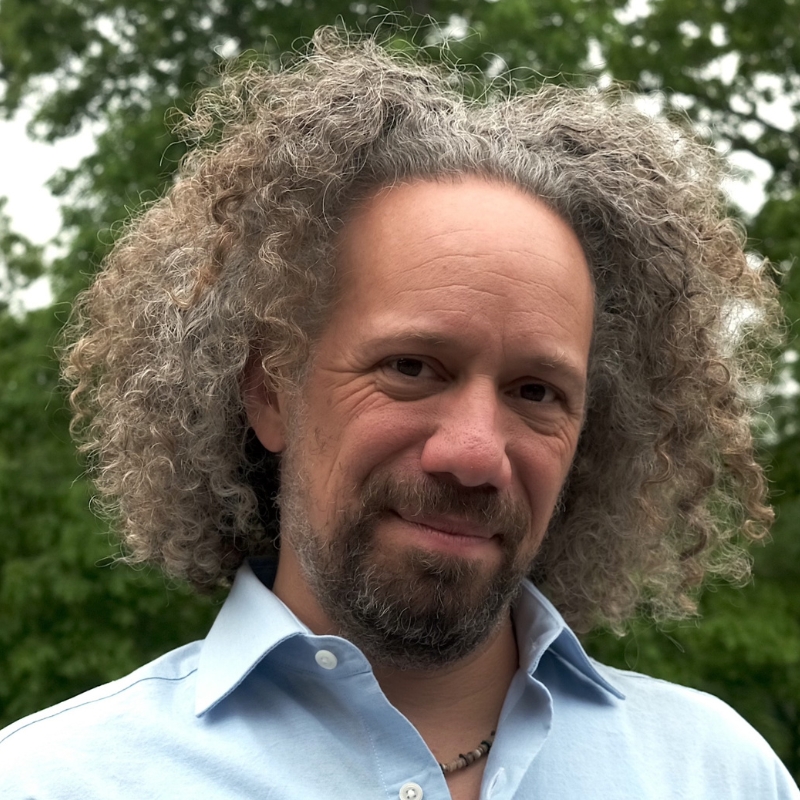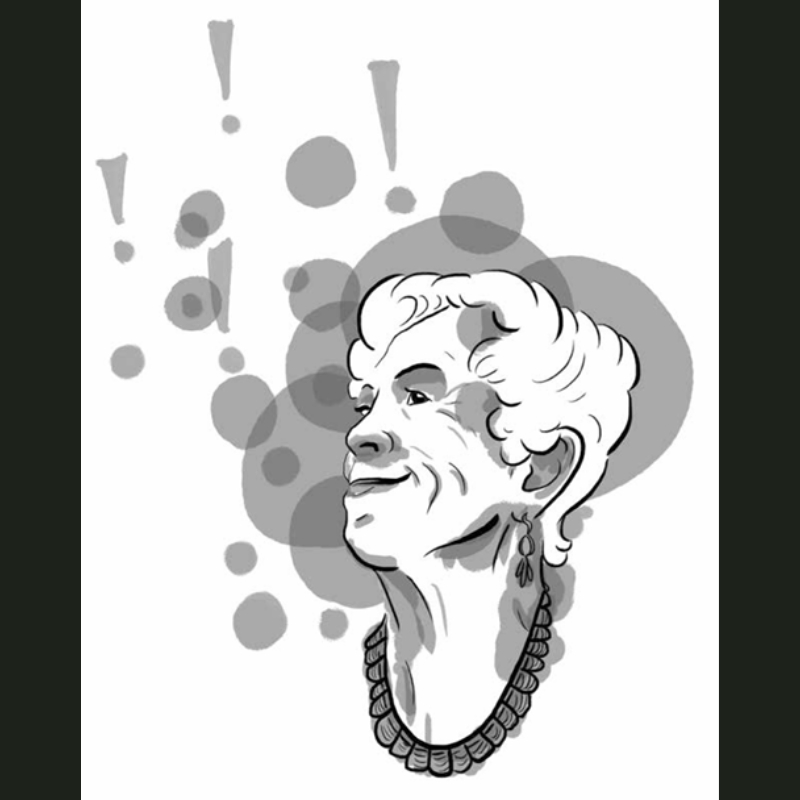The following is an excerpt from “Fragments III: Democracy, “ a journal from T’ruah.
There are Jewish grandmothers who want nothing more than to feed you and comment on what you are and are not eating. There are Jewish grandmothers who want nothing more than to badger you with questions about why they don’t yet have great-grandchildren. And there are Jewish grandmothers who are never so proud of you as when you get arrested at a political protest, standing up for your values. My Grandma Nettie was all three.
Nettie Bassis was born into a family of poor Jewish immigrants. Despite losing her mother young and being separated from her father in a Jewish orphans’ home, she maintained a deep bond of love and connection with her siblings. Growing up in New York during the Depression, Nettie developed a strong sense of politics. Though she had a smattering of Yiddish phrases and a few traditional recipes, more than anything else, Nettie’s politics and values were the most potent expression of her Jewish identity. As a teenager, she joined the Young Communist League and other leftist political groups. In young adulthood, she went on a retreat out of the city with one such group, met Grandpa Jerry, fell in love, and eventually started a family.
Nettie and Jerry were of a generation of American Jews who materially benefited from the acceptance of some Jews into American whiteness. Their lives followed a quite common Jewish migration pattern within the United States in the twentieth century: poor childhood in urban New York City, middle-class adult life on suburban Long Island, retirement in southern Florida. Less common was the fact that throughout their upward economic movement, and despite some of the cultural norms they adopted, they maintained the essence of the leftist politics and values of their youth.
In 2008 I was inspired to do some active campaigning in support of Barack Obama’s presidential bid. Though they hadn’t supported Obama in the primary, I knew my grandparents could be counted on to vote for him come fall. Their friends and neighbors in their Palm Beach retirement community were another story.
I called my grandmother to ask if I could come visit her, and if she and Jerry would invite their friends and neighbors over for dinner to talk with me and a couple of my friends about why they should vote for Obama. Nettie, of course, said yes. As always, she couldn’t imagine passing up an opportunity to see one of her grandchildren. The fact that it was connected to my political engagement with the world was, for her, quite the added bonus.
For me, it was more complicated. I had decided early on that my life would be dedicated to working towards the betterment of this world. Like my grandparents, my values and political engagement have always been the most potent expression of my Jewish identity. But I was far more skeptical of the political institutions of this society than they were. American democratic institutions allowed my grandparents to escape the poverty of their childhoods and build a life of stability beyond their wildest dreams — a life that afforded me, their grandchild, the opportunity to look at those same institutions and see the inequity built into them and the injustices they carry out.
Nine years after Nettie helped to elect Obama, our whole family celebrated her birthday together for what would be the last time. Nettie was holding court in the way she often did. Her children and grandchildren, now all grown, were sitting around her in her living room as she went on an hour-long, semi-interrupted monologue. Like the matriarch she was, she offered her usual commentary on each of us: on how we looked, what we were up to in our lives, what we were and weren’t eating, what we should or shouldn’t be doing, and how we should or shouldn’t be living.
And then her tone shifted, becoming more serious: about the political legacy that she wanted to make sure that we, her grandchildren, were carrying out. Political action; values of decency and humanity; fighting for the marginalized and oppressed; standing up for those whose voices are being silenced — whose rights are being trampled. This, above all else, was what Nettie wanted from, and for, her grandchildren.
She looked at me and proudly referenced my recent arrest at a political protest. Then, in what may or may not have been an intentional injection of humor, she said, “I’m not worried about Jonah, but some of you, I’m not so sure…” and playfully slapped my cousin Nathan. The room broke into a deep familial laughter as Nathan, sitting right next to her with a confused “what did I do?” look on his face, spoke up in defense of his own record of political activism.
At ninety-four, my Grandma Nettie was worried about the state of this country. Her last wish before she died was for all of us, her children and grandchildren, to promise we would vote for Biden in the 2020 election, an election she herself would not live to see. It was, for her, one last way to live out her values, to influence the world that she was born into, to say “No” to the current regime and the direction this country has been headed. And while none of us supported Biden in the primary, there was no question: We would vote for him in the general election.
The next time we all gathered was a month after Nettie died. In upstate New York, we sat around my uncle’s living room — Nettie’s children, grandchildren, and extended family, some of whom I hadn’t seen in years — as if we were waiting for her to hold court in the way she used to. As we sat remembering her, my sister entered the room with an impression of Nettie that was so precise — so spot on — that the distant family members who had never heard my sister’s impressions before looked around, half expecting to see Nettie walking into the room. And though her body was not there, her presence was, as my sister channeled not only her voice but her spirit, commenting around the room on each of the children and grandchildren; how I looked, what my uncle was and wasn’t eating, what my cousins were and weren’t doing with their lives. Deep laughter filled the room.
That was how the stories started flowing. The best came from my brother:
In the late fall of 2004, during the years of George W. Bush, Nettie came to New York City and was staying with my mother and brother in their apartment on the Upper West Side. One night, in the middle of the night, she got up to get a glass of water from the kitchen and she fell. She tried calling out for help but her voice, softer than usual, did not carry through the apartment, so she called 911.
A little while later, my mother was woken up by paramedics banging on the door. Half asleep as she walked to answer the door, she looked toward the kitchen and saw her mother on the floor. Confused, she let the paramedics in and led them to Nettie. They helped her up and examined her. Nettie regained her balance and her composure. She was more embarrassed than anything else. The paramedics insisted on taking her to the hospital, but she refused. She wanted the incident to be over, not to be spoken of.
To be sure she was in a sound mental state before acceding to her wish, the paramedics asked her a series of questions. She did fine. She could say where she was, who she was visiting, what the year and date was. Then they asked her who the president of the United States was. She gathered herself together, looked at them with the fortitude of a dignified elder, and said emphatically, “I hate him and I won’t say his name.”
The room burst into deep, loving, unmitigated laughter; full of pride, full of awe, full of grief. That was our Grandma Nettie…the ferocity, the integrity, the “I don’t care who you are or what the situation is, I will not back down from standing by my values and beliefs.” The power of a grandmother saying “No!” in the way only a grandmother can.
As the laughter died down and tears were being wiped away, another elder, a distant grandmother in the family, spoke up. “You know,” she said in an almost embarrassed but also proud voice, “I have to tell you, that happened to me last year, and I said the same exact thing.”
The room burst again. More laughter, more tears, more awe and pride in the strength and power of our elders, in the fortitude and determination of our grandmothers. It was the perfect way to remember my Grandma Nettie; fulfilling her dream that her family would stay a family after she was gone; honoring her legacy by continuing to stand up for our values.
I am under no delusion about the world we are living in; about what time it is on the world’s clock. I know that much of what we face is not unprecedented, that so much of what I fear is already the reality for so many. This government is already experimenting on women’s bodies, already locking kids in cages, already engaging in extrajudicial murder of Black and Indigenous people. The land has already seen the apocalyptic genocide of its Indigenous stewards. It is already on fire and under water.
In the midst of all of this bigness, and the occasional overwhelm it creates in my body, I think of my Grandma Nettie. She was never a person who held any position of real power in this world. She did not act in large-scale ways that would get her name into a history book. She did not do everything right and, like any of us, made choices that, upon closer examination, did not always line up with her values. But through all of it, she held onto those values; she built a life living as close to them as she could figure out how. It was a small life but an active one, full of contradiction, but ultimately lived with integrity. My Grandma Nettie did everything she could to positively impact each of the lives she came into contact with during her life. It is a legacy that I hope I can live up to. I know she believed I could.

JONAH CANNER (he/him) is an ambassador from the world we have not yet built. He believes in people, community, and the sacred obligation we have to make positive change in the world around us. Jonah’s primary areas of focus include racial equity, restorative justice, experiential education, and working through conflict. In his free time, Jonah is writing a collection of memoir essays that explore questions of grief, identity, ancestry, and place.

